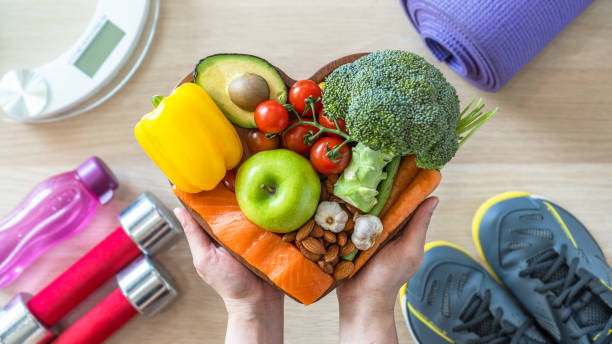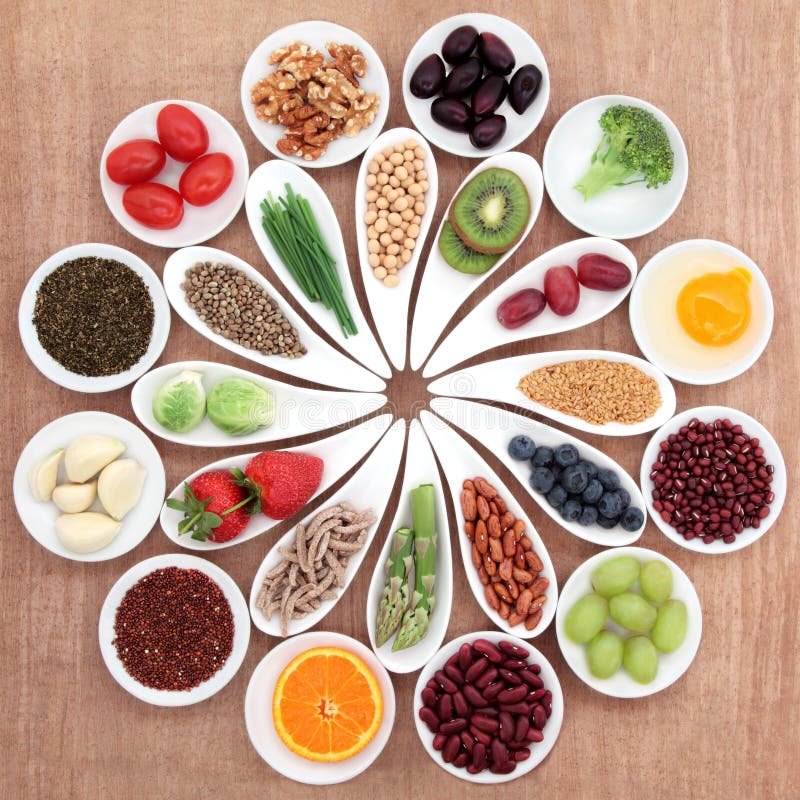Introduction: Breaking the Vegetarian Protein Barrier and Building Strength
Muscle building and bulking have long been associated with consuming large amounts of animal protein, such as chicken, meat, and dairy products. This prevailing belief has led many to ask: Is it truly possible to build strong muscle mass while following a vegetarian diet?
The short answer is: Yes, absolutely.
In recent years, research and practical experience from many professional athletes have proven that a vegetarian diet is not just a healthy choice, but a highly effective path to achieving fitness goals and building muscle. It only requires a precise understanding of plant-based protein sources and how to intelligently combine them to ensure the intake of the essential amino acids necessary for Muscle Protein Synthesis (MPS).
This article is your comprehensive and detailed guide to exploring the world of protein-rich vegetarian meals and how to turn them into effective fuel for building your muscles, with a focus on the scientific, practical, and nutritional aspects.
First: The Scientific Basis of Plant Protein and Muscle Building
To build muscle, the body needs protein, which is composed of smaller building blocks called amino acids. There are 20 amino acids, 9 of which are known as Essential Amino Acids (EAAs), which the body cannot synthesize and must be obtained from food.
1. The Complete Protein Challenge
Animal protein is known as a "complete protein" because it contains all nine essential amino acids in sufficient quantities. Plant protein, however, is often "incomplete," meaning it lacks one or more of these essential amino acids (such as lysine or methionine).
The solution lies in variety and mixing:
You do not need to consume a complete protein in every meal. It is sufficient to obtain all essential amino acids throughout the day. This can be easily achieved by combining different plant sources in your meals. For example:
Legumes (lentils, beans) + Whole Grains (rice, bread): Legumes are rich in lysine but low in methionine, while grains are rich in methionine and low in lysine. Combining them (such as rice and lentils) forms a complete protein. Soybeans (Tofu, Tempeh): This is a plant-based exception, as it is naturally a complete protein, making it a cornerstone of any muscle-building vegetarian diet.
2. The Importance of Leucine
Leucine is an essential amino acid that plays a crucial role as the "on switch" for Muscle Protein Synthesis (MPS). Although plant sources may contain lower amounts of leucine compared to meat, this can be compensated for by:
Increasing the total amount of protein: Consuming a slightly larger amount of plant protein to ensure reaching the "leucine threshold" required to stimulate muscle growth. Choosing leucine-rich sources: Such as soybeans, legumes, and some nuts and seeds.
Second: The Best Plant Protein Sources for Muscle Building
To achieve your muscle-building goal, you should focus on plant sources that offer the highest concentration of protein per calorie, in addition to a complete set of other nutrients.
1. Soy Products (The King of Plant Protein)
| Source | Protein per 100g (Approx.) | Key Advantages |
|---|---|---|
| :--- | :--- | :--- |
| <strong>Tofu</strong> | 8-15 grams | Complete protein, versatile, low fat. |
| <strong>Tempeh</strong> | 18-20 grams | Complete protein, rich in probiotics (thanks to fermentation). |
| <strong>Edamame</strong> | 11-12 grams | Complete protein, rich in fiber and vitamins. |
Practical Tip: Tofu can be used instead of chicken in stir-fries, or tempeh as a substitute for ground meat in pasta sauces.
2. Legumes and Grains
Legumes and grains are a treasure trove of protein, fiber, and complex carbohydrates, providing sustained energy for long workouts.
Lentils: About 9 grams of protein per half cup cooked. An excellent source of iron and folic acid. Chickpeas: About 7-8 grams of protein per half cup cooked. Essential for preparing hummus and mutabal. Black and Red Beans: About 7-8 grams of protein per half cup cooked. Quinoa: About 8 grams of protein per cup cooked. Another plant-based complete protein, and rich in magnesium.
3. Nuts and Seeds
Nuts and seeds provide an ideal mix of protein and healthy fats (Omega-3), which are essential for joint health and reducing inflammation.
Pumpkin Seeds: About 5 grams of protein per 30 grams. Almonds: About 6 grams of protein per 30 grams. Chia Seeds: About 4 grams of protein per two tablespoons. Natural Peanut Butter: A calorie-dense source of protein, ideal for those looking to gain weight.
4. Isolated Plant Proteins and Supplements
To ensure you meet your high protein needs, especially on intense training days, you can rely on plant-based protein powders:
Pea Protein: Easy to digest and rich in iron. Brown Rice Protein: Often combined with pea protein to form a complete protein. Hemp Protein: Rich in Omega-3 and 6 fatty acids.
Third: Practical Strategies for Vegetarian Meal Planning
Success in muscle building as a vegetarian depends on smart planning. Every meal should ensure a sufficient amount of protein, complex carbohydrates, and healthy fats.
1. Determining Your Daily Protein Requirement
Generally, athletes aiming to build muscle need between 1.6 to 2.2 grams of protein per kilogram of body weight daily.
Example: If your weight is 70 kg, your daily protein goal ranges between 112 and 154 grams.
2. Distributing Protein Across Meals
To maximize Muscle Protein Synthesis, it is recommended to distribute protein servings evenly across 4-6 meals daily, with each main meal containing at least 20-30 grams of protein.
| Meal | Example of a Protein-Rich Vegetarian Meal | Approximate Protein (grams) |
|---|---|---|
| :--- | :--- | :--- |
| <strong>Breakfast</strong> | Oatmeal cooked with pea protein, chia seeds, and almond butter. | 30-35 |
| <strong>Snack (Pre-Workout)</strong> | Apple with a handful of almonds and a piece of grilled tofu. | 15-20 |
| <strong>Lunch</strong> | Large quinoa salad with hummus, black beans, and leafy greens. | 25-30 |
| <strong>Snack (Post-Workout)</strong> | Plant-based protein shake (pea and rice) with soy milk and banana. | 30-40 |
| <strong>Dinner</strong> | Fried tempeh with brown rice and sautéed vegetables. | 30-35 |
| <strong>Snack (Before Bed)</strong> | Soy yogurt with pumpkin seeds. | 10-15 |
| <strong>Daily Total</strong> | <strong>140-175 grams</strong> |
3. Focusing on Timing
Pre-Workout Meal: Should be rich in complex carbohydrates to provide energy, and contain a moderate amount of protein (e.g., oatmeal with chia seeds). Post-Workout Meal (Anabolic Window): This is the most important. A meal rich in protein (20-40 grams) and simple carbohydrates (to replenish glycogen) should be consumed within one to two hours after finishing the workout. Protein shakes are the fastest and most effective option here.
Fourth: Practical Vegetarian Recipes for Muscle Building
Here are some practical meal ideas you can easily prepare to ensure you get enough protein:
1. Champion's Breakfast: Overnight Protein Oats
Ingredients: Half a cup of oats. One cup of unsweetened soy or almond milk. One tablespoon of chia seeds. One tablespoon of peanut butter. One scoop of plant-based protein powder (optional).
Preparation Method: Mix all ingredients and place them in the refrigerator overnight. Eat cold in the morning. Approximate Protein: 25-35 grams.
2. Quick Lunch: Lentil and Quinoa Salad
Ingredients: One cup of cooked quinoa. Half a cup of cooked lentils. Chopped vegetables (tomatoes, cucumbers, onions). Dressing made from olive oil, lemon juice, and vinegar.
Preparation Method: Mix all ingredients. This meal provides a complete protein. Approximate Protein: 20-25 grams.
3. Satisfying Dinner: Turmeric and Spinach Tofu
Ingredients: 200 grams of firm tofu, drained and cubed. One teaspoon each of turmeric, cumin, and coriander. One cup of fresh spinach. Olive oil.
Preparation Method: Season the tofu with spices and fry it in olive oil until golden. Add the spinach and stir until wilted. Serve with brown rice or sweet potatoes. Approximate Protein: 25-30 grams.
Fifth: Essential Complementary Nutrients
Muscle building does not rely solely on protein. The vegetarian athlete needs to pay attention to some nutrients that may be less abundant in plant-based diets:
1. Vitamin B12
Essential for nerve function and red blood cell formation. It is not naturally found in plant foods, so it must be obtained from: Fortified Foods: Such as soy milk, breakfast cereals, and some meat alternatives. Dietary Supplements: Taking a B12 supplement regularly is highly recommended.
2. Iron
Plant-based iron (non-heme) is less absorbed than animal iron (heme). To increase its absorption: Combine Iron Sources with Vitamin C: Eat lentils or spinach with lemon juice or bell peppers. Rich Sources: Lentils, beans, spinach, quinoa.
3. Zinc
Important for metabolism and muscle repair. Rich Sources: Legumes, nuts, seeds (especially pumpkin seeds), and whole grains.
4. Omega-3 Fatty Acids
Important for reducing inflammation and accelerating muscle recovery. Rich Sources: Chia seeds, flaxseeds, walnuts, and algae oil (as a supplement).
Conclusion: Plant Power is the Future
Gone are the days when a vegetarian diet was synonymous with weakness or nutritional deficiency. Today, a protein-rich vegetarian diet represents a sustainable, healthy, and highly effective path to building muscle and improving athletic performance.
It only requires a commitment to variety, proactive meal planning, and a keenness to incorporate complete protein sources or intelligently combine incomplete sources. Remember that every meal is an opportunity to nourish your muscles and achieve your maximum physical potential. Start applying these strategies today, and you will discover the tremendous power inherent in the plant kingdom.
--- Important Note: It is always recommended to consult a nutritionist or sports physician before making drastic changes to your diet, especially if you are a professional athlete or suffer from any health condition.



